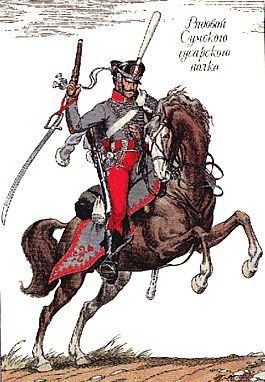 Now that I have gobs of spare time, I've started reading War and Peace. It took me a while to get into - at first I could only read in short patches - but around 100 pages in I finally started to get invested. I've just finished Book 1 (of five, each divided into parts, each of which is divided into short chapters).
Now that I have gobs of spare time, I've started reading War and Peace. It took me a while to get into - at first I could only read in short patches - but around 100 pages in I finally started to get invested. I've just finished Book 1 (of five, each divided into parts, each of which is divided into short chapters).There are a lot of characters, all with the Russian patronymics and whatnot. It doesn't help that a lot of names are used over and over for different characters (e.g., in the Bolkonsky family, Prince Andrei is the son of Prince Nikolai, but over in the Rostov family, there is a Count Nikolai who is part of Prince Andrei's generation. And there are two Vasilly's as well.) It also doesn't help that a lot of the book concerns the Napoleonic Wars. I am both ignorant of the history here, and generally uninterested in (and cannot easily follow) military history and descriptions. For instance, I don't know the different ranks in an army so whether a corporal or a captain or a sergeant is of higher rank, I couldn't tell you. (Yes, it is possible to look these things up, but it's not fun to read a book if you continually have to look everything up.)
On the eve (in the book) of the Battle of Austerlitz, I did stop and read the Wikipedia article about it, out of pure curiosity. I wasn't concerned about spoilers since it seems likely that Tolstoy would have assumed his readers would be familiar with its outcome. But it was very surprising to read the names of some characters from the book in the article. It is as though in some alternate reality, these characters in a novel were living people. I enjoyed looking at paintings of them as well. I've also been supplementing my reading by doing google image searches on words like "hussar" and "Cossack."
As with Anna Karenina, there are parts of this book that sort of blow me away and that I find myself thinking of over and over again. Unlike Anna Karenina, I don't find it a totally captivating read. But it's captivating enough to be worth it, given that it's also a great work.























